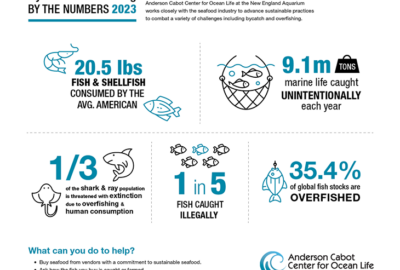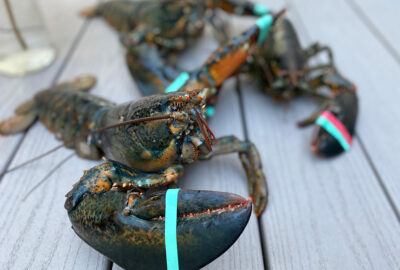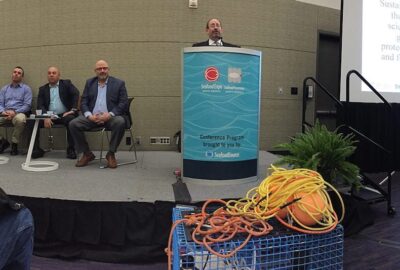Bycatch in a commercial lobster fishery: Effects on two benthic predators, Sea Raven and Longhorn Sculpin
By Brooke N. Anderson, Amelia M. Weissman, Brett Sweezey, John Mandelman, David B. Rudders, James A. Sulikowski
Originally published in Marine and Coastal Fisheries: Dynamics, Management, and Ecosystem Science in March 2020

Abstract
Studying the species-specific responses to fishing capture is critical for effective management and conservation of bycatch species given that acute stress incurred from capture and handling may ultimately lead to mortality. While species of low commercial value are often overlooked, having accurate information on the effects of capture on all species is necessary for ecosystem-based management. Sea Raven (SR) Hemitripterus americanus and Longhorn Sculpin (LHS) Myoxocephalus octodecemspinosus are routinely captured in the commercial American lobster Homarus americanus fishery in the Gulf of Maine, and they are discarded due to low commercial value. Despite a lack of economic value, these predatory species play important roles in shaping the benthic communities that they inhabit, highlighting the need to study their stress and mortality due to capture and handling. To help understand the effects of the lobster fishery on these species, the current study evaluated the physical, behavioral, and physiological stress responses of SR and LHS to capture in the state of Maine Zone G commercial lobster fishery. Collectively, our results suggest that although these species appeared to be resilient to capture based on an overt injury assessment, stress responses occurred based on reflex impairment and physiological perturbations, and these responses were species-specific. Given the prevalence of behavioral and physiological stress in this study, further research into the survival outcomes of SR and LHS following release in the commercial lobster fishery is warranted.
Full Text





